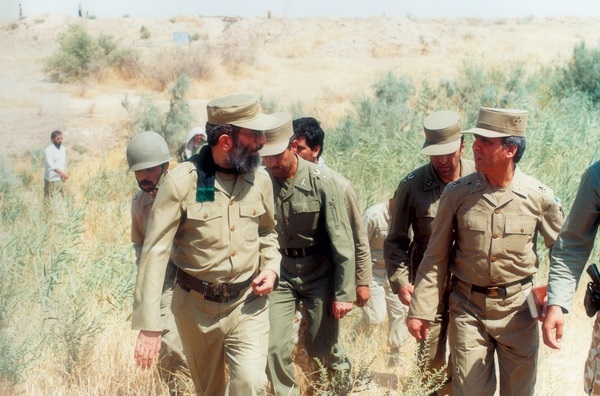With the development of Iraqi Kurds joining an opposition front against the Baghdad government, Suddam Hussein’s attempts to ally with Kurds seems to fail to extend to those living inside his borders.
Since the beginning of the Iran-Iraq War, Iraq’s government has tried to leverage the Kurdish factor against Iran, allying with and establishing a weapons supply route to the Kurdish Democratic Part of Iran (KDPI), located near the northern Iranian cities of Nowdesheh and Qasr-Shirin. Backed by Iraqi supplies and captured Iranian deposits, the KDPI attempted to establish “Kurdish Liberated Zones”, however, by the end of 1981, Iran pushed back against Iraqi forces in the northern front, subsuquently attacking the KDPI and squashing Hussein’s attempt to raise the Kurds as a potential threat against Iran.
Furthermore, the recent Iraqi coalition of dissident Ba’athists, breakaway Iraqi Army officers and Iraqi Shiites have a new ally: Iraqi Kurds. This coalition calls itself the Iraqi Front of Revolutionary, Islamic and National Forces, and has managed to execute a series of attacks from Rawanduz, 25 miles from the Iranian border to Amadiyah, lying near the Turkish border.
This insurgency group, supported by Syria and the Iranian Army, are further emboldened by the Iraqi Army’s waning control over northern Iraq, as forces have been transferred to other regions in order to support the war against Iran.
Other countries are cautious in their support for this new Kurdish movement: “We believe that the Kurdish people have the right to self-sovereignty, however, militant uprisings will only cause unnecessary bloodshed,” the representative from Australia said.

